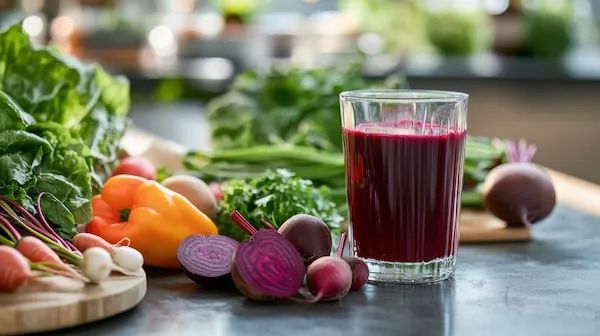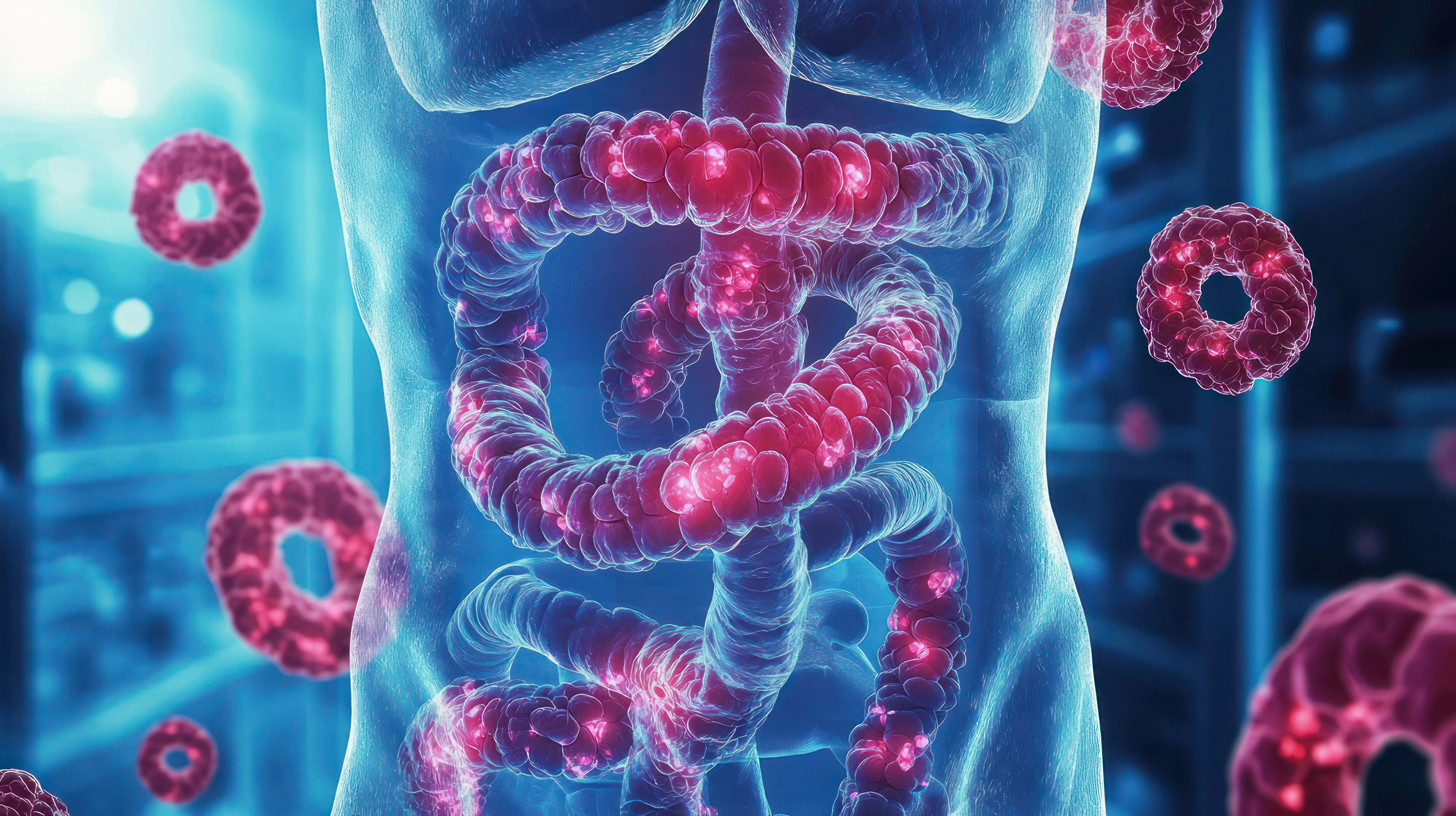Foods for Hemorrhoids: A Dietary Approach to Relieving Symptoms and Promoting Digestive Health
Learn about the best foods for hemorrhoid relief, how a fibre-rich diet can ease symptoms, and promote overall digestive health for better comfort and well-being.

Written by
Last updated on 3rd Jul, 2025
Introduction
Hemorrhoids are a common and often painful condition that affects millions of people worldwide. Whether they are external or internal, haemorrhoids can cause discomfort, itching, and bleeding, particularly during bowel movements. While medical treatments and lifestyle changes can be helpful, one of the most effective ways to manage and prevent haemorrhoid flare-ups is through diet. In this article, we’ll explore the foods that can help alleviate haemorrhoid symptoms, improve digestion, and prevent future flare-ups. By making the right dietary choices, individuals can promote better digestive health and find relief from this uncomfortable condition.
Understanding Hemorrhoids
Hemorrhoids, also known as piles, are swollen veins in the lower rectum and anus. Hemorrhoids are classified into two main types: internal and external. Internal haemorrhoids are located inside the rectum and are usually painless but can cause bleeding. External haemorrhoids, on the other hand, develop under the skin around the anus and can be painful and itchy. Common causes of haemorrhoids include:
Chronic constipation or straining during bowel movements
Pregnancy, which increases pressure on the pelvic veins
Obesity or excessive weight
Sedentary lifestyle
Poor diet lacking in fibre and fluids
Ageing, which can weaken the tissue supporting veins in the rectum
Dietary changes play a crucial role in managing haemorrhoids, as they can help soften stools, reduce straining, and promote regular bowel movements.
The Role of Fiber in Hemorrhoid Relief
Fibre plays a crucial role in managing and preventing haemorrhoids. It adds bulk to stool, making it softer and easier to pass, thus reducing the need to strain. Fibre also helps regulate bowel movements, preventing both constipation and diarrhoea, which can exacerbate haemorrhoid symptoms.
There are two types of fibre: soluble and insoluble. Both are beneficial for digestive health, but they work in different ways:
Soluble fibre dissolves in water to form a gel-like substance, which can help soften stool and improve its consistency. Foods rich in soluble fibre include oats, beans, lentils, and certain fruits like apples and pears.
Insoluble fibre adds bulk to stool and helps move it through the digestive tract. It is found in whole grains, vegetables, and wheat bran.
Best Foods for Hemorrhoids
A diet rich in fibre, along with plenty of fluids, can significantly reduce the symptoms of haemorrhoids. Below are some of the best foods to include in your diet to manage and alleviate haemorrhoid discomfort.
1. Whole Grains
Whole grains are an excellent source of insoluble fibre, which helps prevent constipation and promote regular bowel movements. Incorporating whole grains like brown rice, quinoa, barley, and whole-wheat bread into your diet can help prevent straining during bowel movements, a key trigger for haemorrhoids.
Tip: Swap refined grains (like white bread and pasta) for whole grains to boost fibre intake.
2. Fruits
Fruits are naturally high in fibre, antioxidants, and water content, all of which are beneficial for haemorrhoid management. Some fruits that can help ease haemorrhoid symptoms include:
Apples: Rich in soluble fibre, apples help soften stool and prevent constipation.
Pears: High in both soluble and insoluble fibre, pears are a great choice for preventing haemorrhoid flare-ups.
Berries: Blueberries, strawberries, and raspberries are fibre-packed and full of antioxidants, which can reduce inflammation.
Bananas: A good source of both fibre and potassium, bananas can help regulate bowel movements and prevent cramping.
Incorporating a variety of fruits into your diet will provide both the fibre and hydration necessary for healthy digestion.
3. Vegetables
Vegetables are rich in fibre, vitamins, and minerals that are essential for overall digestive health. Some of the best vegetables to include in a haemorrhoid-friendly diet are:
Leafy greens: Spinach, kale, and Swiss chard are excellent sources of fibre and can help soften stool.
Broccoli: High in both soluble and insoluble fiber, broccoli can help reduce constipation and maintain healthy digestion.
Carrots: Carrots provide a good amount of fibre and are gentle on the digestive system.
Aim to fill half your plate with vegetables at each meal to ensure you're getting a variety of nutrients that promote digestive health.
4. Legumes
Beans, lentils, and peas are great sources of fibre, particularly soluble fibre, which helps soften stool and reduce straining. They are also rich in protein, which can help support overall health and energy levels. Some excellent legumes for haemorrhoids include:
Chickpeas
Black beans
Lentils
Kidney beans
Incorporating legumes into soups, salads, and stews is an easy and satisfying way to boost fibre intake.
5. Nuts and Seeds
Nuts and seeds are high in fibre, healthy fats, and proteins that can support bowel health and help reduce inflammation associated with haemorrhoids. Some options include:
Almonds
Walnuts
Chia seeds
Flaxseeds
These can be eaten as snacks or added to smoothies, oatmeal, or salads for a fibre boost. Just be sure to eat them in moderation, as they are calorie-dense.
6. Water-Rich Foods
Staying hydrated is crucial for preventing haemorrhoids and easing their symptoms. Dehydration can lead to hard stool, which makes bowel movements painful and increases the risk of haemorrhoid flare-ups. In addition to drinking plenty of water, incorporating water-rich foods into your diet can help keep your system hydrated. Some excellent options include:
Cucumbers
Watermelon
Cantaloupe
Tomatoes
These foods are not only hydrating but also rich in vitamins and antioxidants that support overall health.
Probiotic-Rich Foods for Gut Health
Probiotics are beneficial bacteria that support gut health and improve digestion. Incorporating probiotic-rich foods into your diet can help maintain a healthy balance of gut bacteria and promote regular bowel movements. Some probiotic-rich foods include:
Yoghurt: Choose plain, unsweetened yoghurt with live, active cultures for the best probiotic benefits.
Kefir: This fermented milk drink is rich in probiotics and can be consumed on its own or added to smoothies.
Sauerkraut: Fermented cabbage is a great source of probiotics. Look for unpasteurized sauerkraut in the refrigerated section for the most benefits.
Kimchi: A traditional Korean dish made from fermented vegetables, kimchi is packed with probiotics and adds a spicy kick to meals.
Miso: A fermented soybean paste used in Japanese cuisine, miso is rich in probiotics and can be added to soups and sauces.
Hydration: The Key to Soft Stool and Healthy Digestion
In addition to fibre, hydration is one of the most important factors for managing haemorrhoids. Water helps to soften stool, making it easier to pass and reducing the strain on the veins in your rectal area. When you're well-hydrated, your digestive system functions more smoothly, and you're less likely to experience constipation or straining.
Aim to drink at least 8-10 glasses of water per day. In addition to water, herbal teas and vegetable broths can also provide additional digestive support.
Foods to Avoid with Hemorrhoids
While certain foods can help alleviate haemorrhoid symptoms, others may exacerbate the condition. Avoiding or limiting such foods can help prevent flare-ups and promote better digestion:
Processed foods: These are often low in fibre and can lead to constipation and digestive discomfort.
Spicy foods: Hot peppers and spicy seasonings can irritate the digestive tract and worsen haemorrhoid symptoms.
Alcohol: Alcohol can dehydrate the body, leading to constipation and difficulty passing stool.
Caffeinated beverages: Excess caffeine can act as a diuretic, which may lead to dehydration and constipation.
Refined sugars: High-sugar foods can disrupt gut bacteria and contribute to digestive issues like bloating and constipation.
Conclusion
Diet plays a crucial role in managing and preventing haemorrhoids. By incorporating fibre-rich foods, staying hydrated, and including probiotic-rich foods in your diet, you can improve your digestive health and find relief from haemorrhoid symptoms. Additionally, avoiding certain foods that can exacerbate symptoms can further support your efforts to manage haemorrhoids effectively. Remember, everyone's body is different, and what works for one person may not work for another. Pay attention to your body's responses to different foods and make adjustments as needed. If you have any concerns or persistent symptoms, don't hesitate to seek advice from a healthcare professional.
Consult Top Dieticians
Consult Top Dieticians

Ms. Soma Saha
clinical nutrition
17 Years • B.Sc. - Home Science (Food & Nutrition), M.Sc. - Home Science (Food & Nutrition)
Kolkata
Dr Utsa Basu Clinic, Kolkata
(25+ Patients)

Neelanjana J
clinical nutrition
3 Years • Bsc., Msc. Nutrition and Dietetics.
Bengaluru
Apollo Clinic, JP nagar, Bengaluru

Dr Venkata Naga Sai Tribhushan Rambhatla
General Physician
3 Years • MBBS
Bengaluru
PRESTIGE SHANTHINIKETAN - SOCIETY CLINIC, Bengaluru

Dr. Suresh G
General Physician/ Internal Medicine Specialist
25 Years • MBBS, MD
Bangalore
Apollo Clinic Bellandur, Bangalore
(225+ Patients)

Dr Darshana R
General Physician/ Internal Medicine Specialist
15 Years • MBBS, MD, DNB (Internal Medicine), Diploma in Allergy, Asthma and Immunology , Fellowship in Diabetes
Bengaluru
Apollo Clinic, JP nagar, Bengaluru
(100+ Patients)


